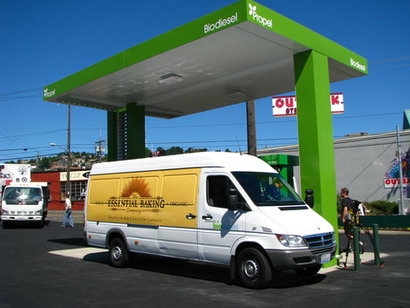
The IEA report finds that bioenergy is an essential component of the future low-carbon global energy system if climate change targets are to be met. This is especially true given that bioenergy can help to decarbonise sectors in which other low-carbon technologies are either scarce or not available. One of these sectors in transport, particularly with regard to aviation and shipping.
However, the current rate of bioenergy deployment is far below required levels and so acceleration of bioenergy technologies is urgently needed, particularly in the transport section, where deployment needs to triple by 2030. Currently, bioenergy deployment in transport, heat and electricity is far below the level needed to follow the trajectory whereby global average temperature is maintained at 2℃ or below. Current deployment is also geographically concentrated, with Brazil, the European Union (EU), the Peoples Republic of China, and the United States (US) accounting for 90 percent of current global biofuel consumption for transport. In order to maintain the 2℃ level, transport biofuel will have to be distributed much more widely.
Progress in demonstrating the required technologies, such as biomass gasification, pyrolysis and the production of ethanol from cellulosic feedstocks, has been promising, but there is a lot to be done yet. Further progress will require specific policies to support development and deployment, including obligations for deployment of sustainable fuels, appropriate financial mechanisms and the facilitation of technological development and subsequent market deployment.
The IEA report provides an update on two previous IEA roadmaps, one of which was published in 2011 specifically relating to transport biofuel. Since then, there has been a slowdown in the rate of deployment of transport biofuels. The report also complements the analysis of current market trends and the forecast of likely market developments for bioenergy in the transport, electricity and heating sectors over the next five years that are contained in the annual IEA Renewables Market Report (2016, 2017). It also builds on the How2Guide for Bioenergy, a joint IEA and Food and Agriculture Organization (FAO) publication, released in early 2017, which provides guidance on the preparation of national and regional bioenergy roadmaps (IEA and FAO, 2017). It has been prepared in close collaboration with the IEA Bioenergy TCP.
For additional information:
International Energy Agency (IEA)
IEA report – Technology Roadmap: Delivering Sustainable Bioenergy

